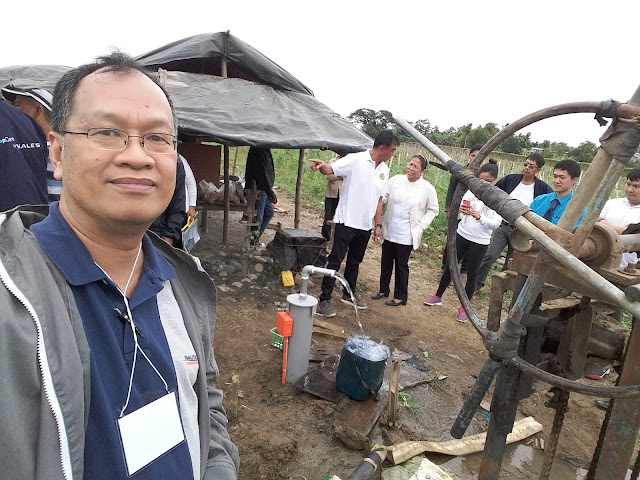TUGUEGARAO CITY, CAGAYAN.
February 14, 2018 - Two more Oversees Filipino Workers, Jenalyn Tumbali of
Penablanca, Cagayan and Rovelyn Orlanda from Baggao, Cagayan were rescued from
their abusive employers in Saudi Arabia after posting their urgent calls for
help seen by their relatives and friends on social media site Facebook. They
immediately sought the intervention of Kilusang Pagbabago-Region 2 on its Facebook
page.
Both OFWs’ plight and cries for
help were urgently brought to the attention of the Kilusang Pagbabago-Cagayan
Valley through Facebook. Upon seeing their posts, KP-Cagayan Valley immediately
brought their requests for assistance to the Oversees Workers Welfare Administration
(OWWA) Regional Office in Tuguegarao City who acted promptly by immediately coordinating
with the concerned offices and institutions like the Philippine Embassy and the
recruitment agency resulting to the rescue and abrupt repatriation of the distressed
OFWs who were victims of maltreatment in Saudi Arabia.
After merely seventy-two hours when KP-Cagayan
Valley acted on the FB posts, OFW Jenalyn Tumbali was able to post on her Facebook
page that her flight to Manila will be on February 14, 2018 after Philippine authorities
were able to legally arrange the necessary activities to facilitate her return
to Manila. Sources indicate that OFW Rovelyn Orlando's case is now being addressed by Philippine officials in Saudi Arabia. The
story was followed through radio stations Bombo Radyo and Radyo Ng Bayan.
The Kilusang Pagbabago (KP) is a
purely volunteer movement for a REAL CHANGE, inspired by the President
Duterte’s call, and by the persevering effort of Cabinet Secretary Jun Evasco
to consolidate and institutionalize active citizens participation in
governance, the formation of Kilusang Pagbabago is being spearheaded by most of
the core members of Duterte’s campaign teams in various regions during the presidential
election campaign period.
The Kilusang Pagbabago can be
described as the "Couterpart-Citizens-Extension" of the Duterte
government’s desire to effect real social change because it professes to be
“for the helpless, hopeless, defenseless” and vows to make “tinud- anay nga
kausaban (REAL CHANGE)" in politics, economics, military, culture and
foreign relations. It is directly linked to the Office of the Cabinet Secretary
through the Office of Participatory Governance (OPG) in Malacanang.
 | ||
KP -Cagayan Valley officials immediately accompanied the OWFs' relatives to OWWA Region 2 for help.
|














































